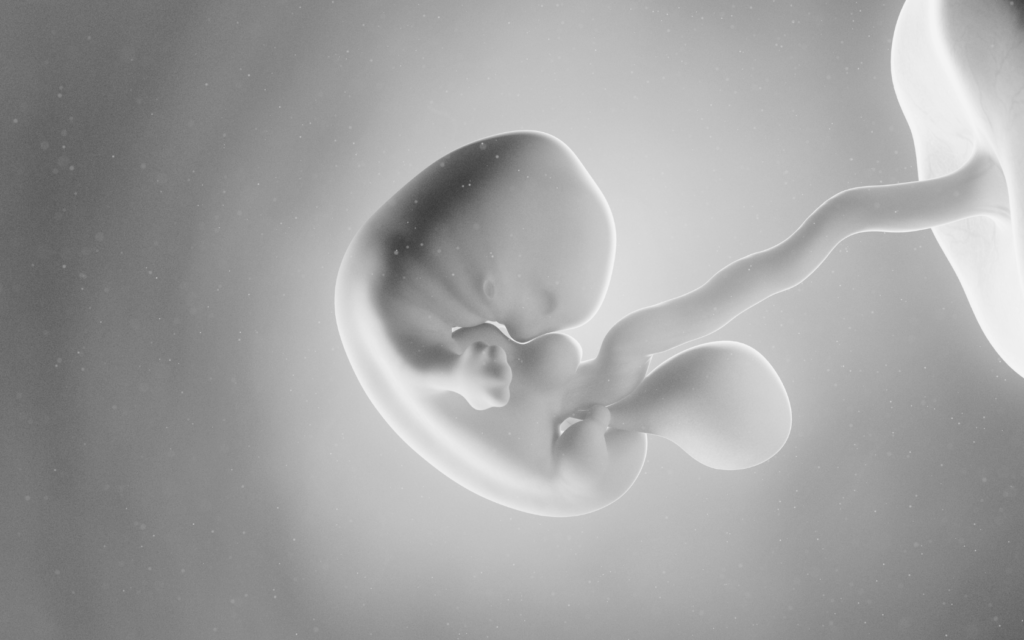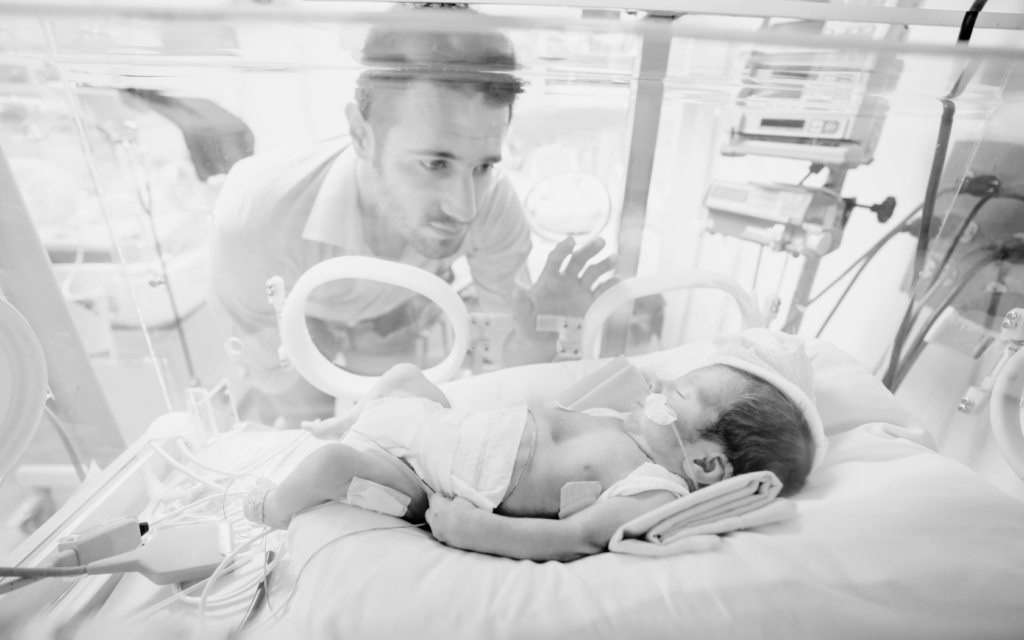Breathing is easy! You don’t even have to think about it—air simply enters your mouth or nose. But how do babies breathe in the womb? The process is much more complex.
In this article, we’ll explain how babies breathe in the womb, and what happens when they can’t get enough oxygen.

Do Babies Breathe in the Womb?
In an ultrasound, you might notice your little one’s chest rising and falling. Is your baby breathing in the womb? Not exactly. Babies don’t breathe in the womb the way we do. But experts say they do practice breathing by making movements that help their lungs develop.
The lungs begin to develop at 4 weeks, at the embryonic stage. At 10 or 11 weeks, a fetus starts swallowing amniotic fluid. This fluid goes into the lungs, helping them grow and mature.
By the third trimester, the baby’s lungs are almost fully developed. The baby practices breathing more, and the lungs produce surfactant. Surfactant is a substance that keeps the lungs from collapsing when the baby takes its first breath.
So, in summary, babies don’t breathe in the womb. But they do practice breathing movements that help their lungs get ready for life outside.
How Do Babies Breathe in the Womb?
Babies get oxygen from their mothers. Here’s how:
- Placenta and Umbilical Cord. The mother has a placenta, an organ that connects her body to her baby’s. The umbilical cord links the baby to the placenta.
- Oxygen Transfer. The mother’s blood carries oxygen to the placenta. The oxygen then moves from the placenta into the baby’s blood.
- Carbon Dioxide Removal. When we breathe out, we release carbon dioxide. But a baby can’t release this gas like we do. Instead, the baby’s blood carries carbon dioxide back to the placenta. Then, the mother’s blood removes it.
- Circulation. Did you know that a baby doesn’t use its lungs until after birth? The baby has a special circulatory system that allows blood to bypass the lungs.

What Happens When Oxygen Flow is Interrupted?
Oxygen has to travel a long, complicated path in order to get to the placenta. If this oxygen flow is interrupted, it can be dangerous for the baby.
When oxygen flow is interrupted, the baby’s body will try to compensate. The baby’s heart rate might speed up to circulate more oxygen. The baby might move less to save energy.
If oxygen deprivation goes on too long, it can lead to hypoxia. This is a condition where the baby’s tissues don’t get enough oxygen. Hypoxia can cause serious health problems, including brain damage.
Birth injuries that can result from oxygen deprivation include:
- Cerebral palsy
- Hypoxic-Ischemic Encephalopathy (HIE)
- Developmental delays
- Seizure disorders
- Learning disabilities
- Organ damage (especially to the heart, kidneys, and liver)
How Might Oxygen Flow Get Interrupted?
The most common way oxygen flow to the baby gets interrupted is pressure on blood vessels. This can happen when contractions are too strong.
One way that contractions can become too strong is through the use of Pitocin. This drug, meant to stimulate contractions, can sometimes overstimulate the uterus. Misuse of pitocin can cause a dangerous condition called uterine rupture, where the uterus tears because contractions are excessive.
Problems with the placenta can also interfere with oxygen flow. These include:
- Placental abruption (a dangerous condition where the placenta detaches from the uterus).
- Placenta previa
- Vasa previa (a rare condition where fetal blood vessels that connect the umbilical cord to the placenta run near the cervix)
Umbilical cord issues can also cause problems with oxygen flow. Oxygen can be cut off if the umbilical cord gets squeezed or twisted. Other issues include:
- Nuchal cord
- True umbilical cord knot
- Cord prolapse
- Infection and inflammation

Oxygen Deprivation and Medical Malpractice
While the answer to the question “Do babies breathe in the womb” is essentially “no”, babies do need oxygen while in the womb.
This is why it’s important for medical professionals to detect issues that might affect oxygen flow to the baby. Conditions like placenta previa and nuchal cord need to be managed right away to prevent babies from suffering serious injuries.
Doctors can’t always prevent a baby from suffering oxygen deprivation or getting injured. But if a doctor’s actions deviate from the standard of care, they could be held responsible for the baby’s injuries.
Do you suspect your doctor’s inaction or action injured your baby? If your baby has a birth injury caused by oxygen deprivation due to malpractice, reach out to our legal team. You may be able to recover monetary damages. A settlement or award can help pay for your child’s medical treatment and improve their quality of life.




